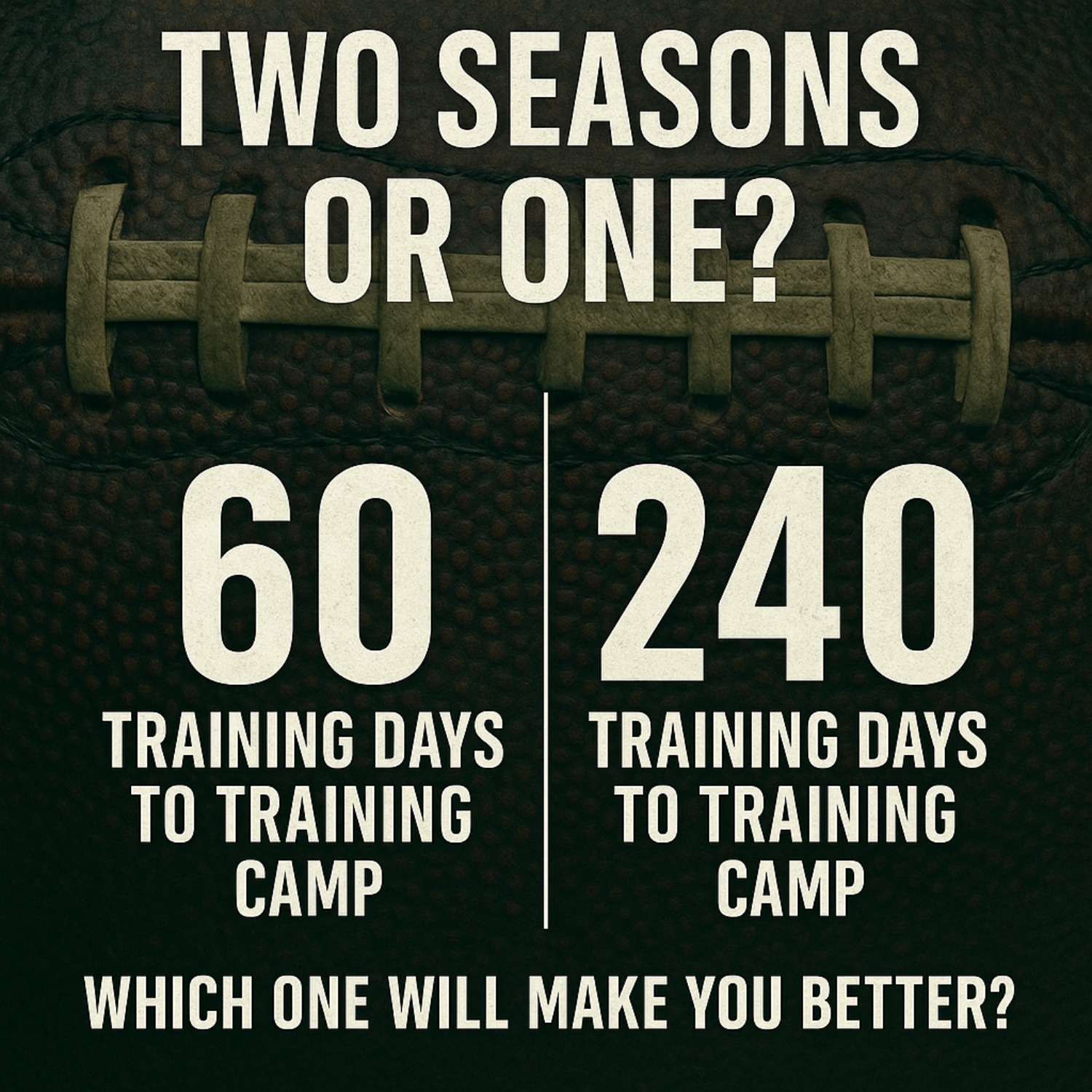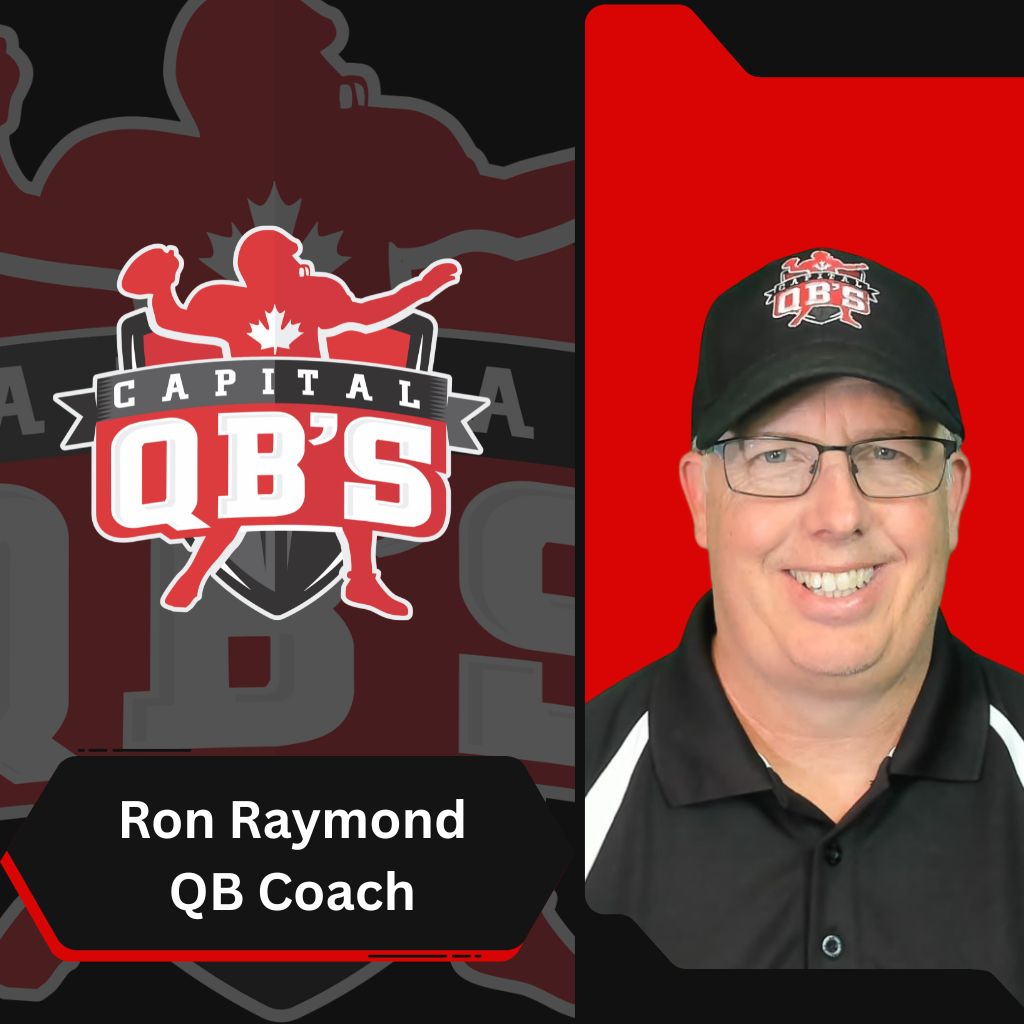In Ontario, Canada (where I live), football has grown like wildfire.
Between the OSFL (May–August) and the fall high school or community season (August–November), competitive players now have a chance to play nearly year-round.
On the surface, it sounds like commitment. But if you take a closer look — physically, mentally, and developmentally — it’s a recipe for burnout.
Think About It:
If your spring camp starts in February or March and your last fall game ends in November, that leaves December and January to rest, recover, and train.
Two months. That’s it.
No strength phase.
No mobility rebuild.
No arm care reset.
No time to get faster, smarter, or stronger.
Eventually, the wheels fall off — physically and mentally.
And by senior year, when college scouts are finally watching, you’re running on fumes instead of peaking.
The Purpose of an Off-Season
The off-season isn’t a “break” — it’s a building phase.
That’s where athletes repair muscle tissue, restore range of motion, fix mechanical flaws, and rebuild their mental focus.
Without that phase, your body doesn’t adapt — it simply survives.
And survival isn’t sustainable if your goal is to compete at the next level.
Ask yourself:
“Am I playing two seasons to get better, or am I just staying busy?”
If the answer is “busy,” you’re sacrificing progress for activity — and there’s a big difference.
Building the Complete Quarterback
At Capital QB’s, we believe a quarterback’s growth comes from balance — balancing effort with recovery, reps with reflection, and training with purpose.
Our mission has always been simple:
“To empower each quarterback with a deep understanding of the game, advanced technical skills, and a profound sense of leadership — developing the Complete Quarterback.”
Our vision extends beyond football.
We aim to develop athletes who lead with integrity, who are respected not just for their arm talent but for their accountability, maturity, and self-awareness.
The L.E.A.D. Philosophy
Our training is guided by a philosophy called L.E.A.D., which stands for:
- Leadership: Inspiring others through effort, composure, and consistency.
- Extension of Plays: Staying calm under pressure and creating opportunity when the play breaks down.
- Athleticism: Building endurance, agility, and functional strength to handle the demands of the position.
- Decision-Making: Developing the mental sharpness to process, read, and anticipate in real time.
The L.E.A.D. approach applies on and off the field — from film study to the classroom to community life. Because quarterbacks don’t just play the game; they represent it.
The Value of QBIQ and Film Study
Off-season training is when a quarterback’s QBIQ (Quarterback Intelligence Quotient) can truly grow.
That’s when we slow down the film, analyze defensive structure, and teach players to process what they see before the snap — the same way a collegiate or professional QB does.
During the season, most players are just trying to memorize plays.
In the off-season, they learn why a play works — that’s where real football intelligence takes root.
Rebuilding Before You Compete
Parents, this isn’t about telling your son or daughter not to compete. It’s about helping them compete smarter.
Football is demanding. Every throw, sprint, and hit taxes the body in ways that take weeks — sometimes months — to fully repair.
Ignoring that reality doesn’t make an athlete tougher. It just shortens their timeline.
The best players at every level know how to periodize their year:
- Train hard.
- Compete strong.
- Recover fully.
Then repeat.
That’s how you build a foundation that lasts.
Final Word
Playing two seasons might feel like progress — but it’s often motion without direction.
If your goal is to truly develop, you need time to reset, rebuild, and refocus on your path.
The athletes who embrace that balance — who take time to train their mind, body, and leadership — are the ones still standing strong when everyone else burns out.
So before you sign up for that second season, ask yourself:
“Am I growing, or just going?”
Because success isn’t about who plays the most football — it’s about who plays the longest and smartest.
Training Sessions
Quarterback Training (Dome)

- Dynamic warm-ups as one group
- QBs: Footwork and Pocket Movement Drills
- Throwing mechanics & accuracy
- Learn the importance of the “LOAD” Step
- Live timing & game-speed reps with REC’s
- Build chemistry that carries into game day
- Register for Dome Sessions Here…
Quarterback Training (Gym Sessions)

- More 1-on-1 Coaching
- Strength & agility training for sharper cuts & throws
- Explosive first-step drills & mobility work
- Mechanics, body control & injury prevention
- Sharpen Throwing Mechanics
- Focused feedback in a small group environment
- Register for Gym Sessions here…
Receiver Training (Dome)

- Receiver-Specific
- Explosive releases to beat coverage
- Route running precision & separation skills
- Sideline awareness & toe-drag technique
- High-point & contested catching drills
- Live QB timing to master game-speed execution
- Catch 100 Footballs each Session from the Capital QB’s
- Register for Receiver Sessions here…






